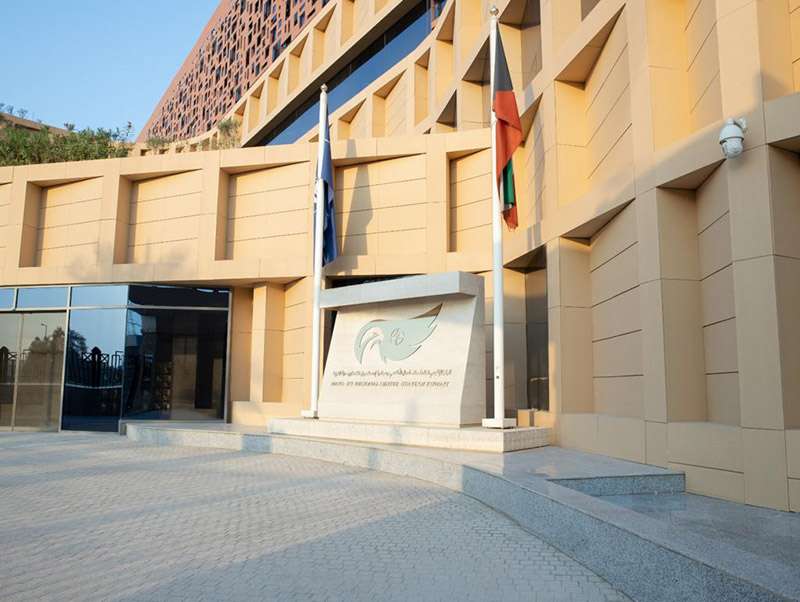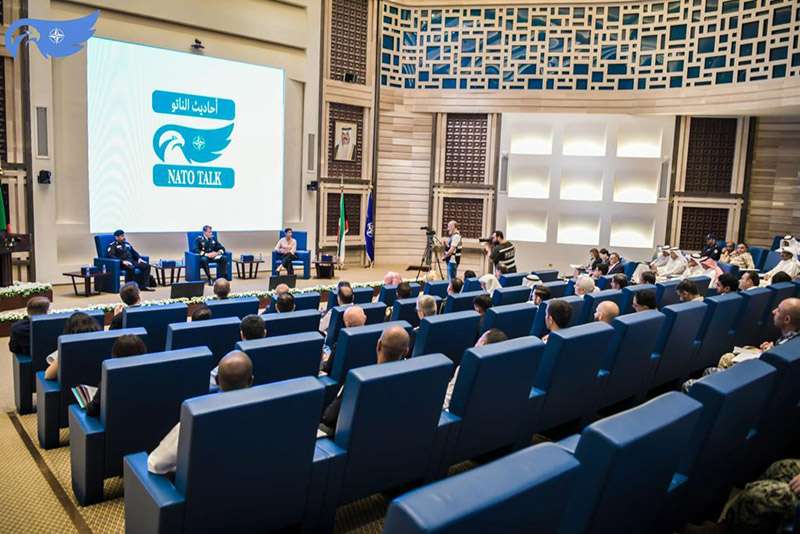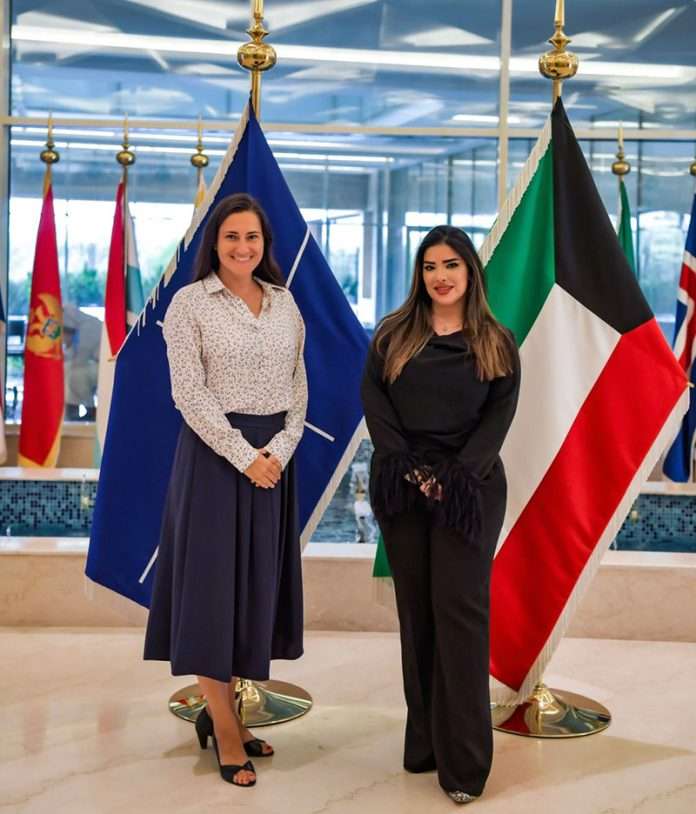THE TIMES KUWAIT REPORT
A small country wedged between large neighbors, Kuwait has throughout its history struggled to protect its borders and preserve its existence. From the time of its establishment in the mid-18th century, Kuwait faced numerous threats to its security from the economic interests and political ambitions of other states and leaders in the region. Powerless to defend its borders on its own, Kuwait has over the ages cultivated strategic alliances with more powerful global players.
The 1899 treaty, which led to Kuwait becoming a protectorate of Great Britain, ensured a period of relative calm that allowed the country to transition peacefully into an independent state in 1961. However, the brutal Iraqi aggression and seven-month occupation of Kuwait in 1990-91 was a reminder to the people and leadership that despite the country’s wealth, influence and its regional and global affiliations, it still remained vulnerable to external threats.
Following liberation in 1991, Kuwait adopted several strategic policies that leveraged its diplomatic, political and financial resources to enhance the country’s global influence. The state also signed military agreements and pacts with global powers to ensure its continued stability and security going into the future.
In line with this new strategy, Kuwait and the United States signed a historic Defense Cooperation Agreement in 1991. Also, in 2013, Kuwait and the US signed the Acquisition and Cross-Servicing Agreement that supports a robust US presence in Kuwait today. Tens of thousands of US forces are stationed in Kuwait, primarily at Camp Arifjan and at the Ali al-Salem Air Base. In a recent media meeting, Commander of the Regional Support Group and supervisor of operations at Camp Buehring and Arifjan, Colonel Martin Wolgemuth, reiterated US commitments to Kuwait’s security.
He added that Kuwait is a vital US partner on a wide range of regional security issues, and the two sides work collectively towards their common goal of a stable and secure Kuwait. In its latest 2021 index of safest countries in the world, the Global Finance magazine ranked Kuwait fourth among Arab countries, and 18th globally. The index reflects the degree of safety in the listed countries based on several factors including national and personal security.
Since 2004, Kuwait has also been designated as an US Major Non-NATO Ally. Beyond the US-Kuwait partnership, at the 2004 NATO Summit in Istanbul, Turkiye, it was agreed to establish the Istanbul Cooperation Initiative (ICI) as a partnership forum between NATO and non-NATO countries in the Gulf region. The partnership framework offers the four ICI member countries the opportunity to cooperate with NATO so as to contribute to long-term global and regional security. Currently, Bahrain, Kuwait, Qatar, and the United Arab Emirates joined the initiative. And, in January 2017, the NATO-Istanbul Cooperation Initiative (ICI) Regional Centre was inaugurated in Kuwait.

As NATO’s only office in the Gulf region, the NATO-ICI Regional Centre serves as a regional hub for partnership and cooperation, through political dialogue, education and training, and public diplomacy. In a recent media interview, Acting Director of the NATO-ICI Regional Centre, Mariam Al-Jiran, and Head of the NATO Office at the NATO-ICI Regional Centre, Nora-Elise Beck, spoke at length on relations between NATO and Kuwait, and on the activities of the NATO-ICI Regional Center.
At the onset, Ms. Al Jiran outlined the key objectives of the Centre: “Strengthening relations with NATO is our primary mandate at the Centre, which is under the oversight of Kuwait’s National Security Bureau. Practical cooperation forms the fundamental pillar of this initiative and the key objectives at the Centre are to: facilitate political dialogue between NATO Member States and their partners in the Arab Gulf region; to discuss global and regional security issues; to develop a common understanding of the security challenges; and to create opportunities for practical cooperation.
“Our main objectives also include the provision of highly efficient and effective education and training, in addition to raising public awareness about NATO, partnership with the Istanbul Cooperation Initiative (ICI), dialogue on security and regional affairs, and bringing stakeholders’ views closer together. Furthermore, the Centre regularly holds conferences, events, and programs that bring together the ICI states and NATO Member states.
“Since the end of last year, we invited not only NATO Allies and ICI/GCC countries to events, but also NATO Partner States such as Jordan, Morocco, Japan, Korea, Tunisia, Australia, and Switzerland. These invitations will benefit all stakeholders because the basis of the Centre and the training programs and events is the strengthening of national capacities and the exchange of expertise among partner States and NATO Member States.

“The beneficiaries of the Centre’s programs and events are mostly government institutions, such as the ministries of interior and defense, Kuwait Fire Force, and the National Guard in Kuwait, as well as the Telecommunications Authority CITRA, the Ministry of Health, and the Directorate-General of Civil Aviation. The National Security Bureau has been chosen to be in charge of the Centre as a neutral body. If the Centre was reporting to the Ministry of Interior for instance, it would have had a military character and civilians would not have benefited from it. Therefore, the National Security Bureau was chosen in order to have balance and neutrality.”
Elaborating on the partnerships, Ms. Beck added: One of the most important achievements that we have made early this year is our collaboration with our counterparts and relevant NATO entities to review the Centre’s vision, that is, for the Centre to be a regional hub for partnership and cooperation on security matters between NATO and the Gulf region through political dialogue, education and training, and public diplomacy.
“We coordinate with our four ICI partners, Bahrain, Kuwait, Qatar and the United Arab Emirates, regarding the work, activities, and training courses held by the Centre. Although Oman and Saudi Arabia did not join the ICI, in their capacity as GCC countries, they can also participate in the activities of the Centre, as can officials from the GCC Secretariat. As our Kuwaiti counterparts like to phrase it: The Centre is NATO’s home not only in Kuwait, but in the Gulf region. Our partnership with ICI countries, in addition to Saudi Arabia and Oman, is a strategic and excellent cooperative initiative that is important to us, and we thank Kuwait very much for hosting us.”
Speaking about the role of NATO in the issue of security of Kuwait’s borders and in the fight against terrorism, Ms. Al Jiran said: “We offer training programs to develop the capacities of the security authorities responsible for the security of sea and land borders and for combating terrorism in Kuwait and in the Gulf countries.
“One of the most important topics we are working on currently is cybersecurity. We deliver strategic training courses to build capacities through lectures, workshops, and training programs at different levels, after which successful individuals obtain a NATO-approved certificate as specialists in the domain of cybersecurity.
“We also have a working group that is affiliated with the ‘Standing Committee for Kuwaiti Focal Points with NATO’. This committee includes the five most important stakeholders we deal with in Kuwait: The Ministry of Foreign Affairs, the National Guard, the Ministry of Defence, the Ministry of Interior, and the General Fire Force. Working group meetings are held on a monthly basis. Through these meetings, we can identify stakeholders’ areas of interest or needs and we build and deliver our training programs accordingly.”
Adding to this line of discussion, Ms. Beck pointed out: “We consider terrorism in all its forms and manifestations one of the greatest threats to the security of the Alliance. Therefore, we deem cooperation with our partners very important in this domain, and we provide training courses for our partners in this field.
“After identifying the needs of the ICI countries through meetings hosted by Kuwait once or twice a year, we establish an Action Plan for the year to come. It’s important for us to involve all ICI countries, as this is a regional center. Once I receive the training needs from our ICI partner countries, I then reach out to several NATO entities, such as Centres of Excellence, the NATO Defence College, Joint Force Command Naples, to just name a few, and explore with them their availability to conduct the requested training courses at the center.”
Pointing to the three axes of political dialogue, public diplomacy, and education and training, on which the Center works, and the accomplishments in recent past, Ms. Al Jiran noted: “In the past year, we strengthened the role of public diplomacy by holding events and diversifying our work in fundamental areas. Last year we introduced Women, Peace, and Security, as well as climate change as topics at the Centre, which are among the most important regional and global matters. These were among the most successful and interactive events.”
Adding her input, Ms. Beck said: “We also held an event last year in which we discussed the new strategic concept of the Alliance. During this event, the Deputy Assistant Secretary General of NATO, Mr. Javier Colomina, briefed event attendees about this new concept.
“This year, we introduced an event format called ‘NATO Talks’. We plan to conduct a series of four events this year, with each event covering a specific topic and being conducted in cooperation with a specific partner institution. The first event was held on 20 March, in cooperation with the Embassy of Canada to Kuwait.
This event focused on interoperability, a crucial topic for the Alliance and its 31 member states. It was one of the most successful events that took place in the Centre since 2017, and was held in the presence of ambassadors of NATO Member States, Gulf countries, and other NATO partner countries, in addition to military attachés and military personnel.
“For the next NATO Talk, we would like to focus on youth and security, in cooperation with the Kuwaiti Youth Council. Hopefully, this event will take place next June. The idea of ‘NATO Talks’ is to have an open, out-of-the box discussion. The audience is closely involved and can ask questions to the invited speakers.”
Turning to security challenges facing the Alliance, Ms. Beck said: “As outlined in NATO’s new Strategic Concept, the most serious security challenge for the Alliance at the moment is Russia, because of the Ukrainian crisis. As for the second major challenge, it is terrorism in all its forms and manifestations. In order to face these challenges, NATO is strengthening its various partnership formats. Therefore, political dialogue is very important to us, especially cooperation with the MENA countries, specifically in the field of counterterrorism, as we provide training courses for our partners in order to cooperate in these areas.
“A third area is climate change, which is a defining challenge of our time, with a profound impact on global security. Climate change is a challenge facing everyone and not a specific geographical area. In this area, we cooperate by providing our expertise, but at the same time we learn from Kuwait and the Gulf countries, given their long experience in how to deal with high temperatures, humidity, and dust. This involves, for example, the effects of climate change that have a direct impact on equipment.
This year, we conducted a first seminar on climate change and security at the Centre, and would like to continue working on this topic in the years to come. “Climate change is important as it has a strong impact on conflicts. Let’s take the example of water scarcity. If fresh water or fertile soils are not available, people might need to leave these regions and move somewhere else, which could give rise to conflicts. Climate change also has similar effects on food security and health.”
Concluding the interview, Ms. Al Jiran pointed out that Kuwaitis desiring to work at the Centre would have to apply as they would to any other government agency. “As I mentioned earlier, the Center falls under the umbrella of the National Security Bureau, which is a government agency. Therefore, application for the Centre is similar to that for any other government agency, and the appointment is made through the National Security Bureau and not through the Centre itself.”

















